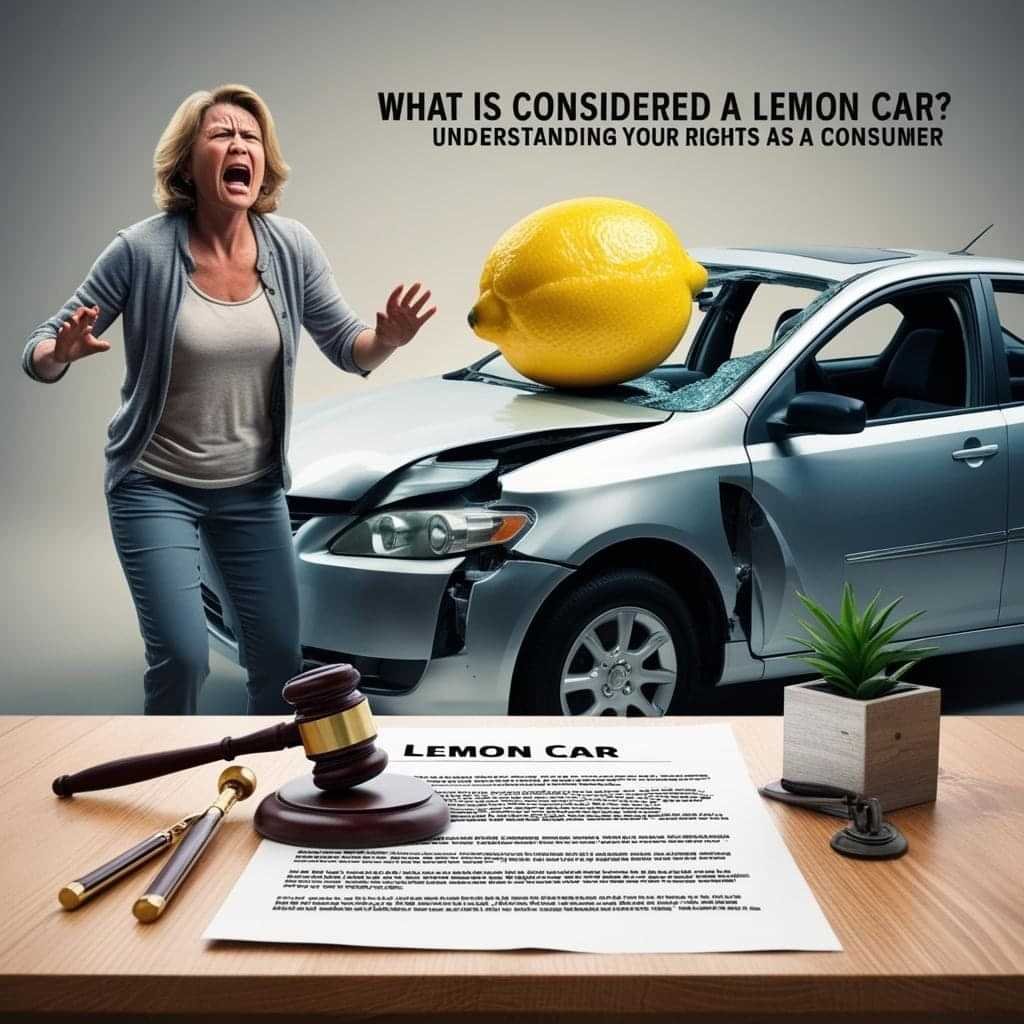Purchasing a car should be an exciting and rewarding experience. However, if your new or used vehicle turns out to be faulty, the excitement can quickly turn to frustration. Many drivers are left wondering what is considered a lemon car and what steps they can take if they find themselves stuck with one.
A “lemon” refers to a vehicle that has substantial defects affecting its safety, value, or utility—typically those that persist even after multiple repair attempts. Thankfully, lemon laws exist to protect consumers from being burdened with such vehicles.
The Legal Definition of a Lemon Car
To understand what is considered a lemon car, it’s important to recognize how lemon laws work in your state. While exact criteria vary by jurisdiction, most states agree that a vehicle may be classified as a lemon if:
- It has a significant defect covered by warranty
- The issue emerged within a specific timeframe or mileage
- The dealer or manufacturer has made several unsuccessful repair attempts
- The car is out of service for a set number of days due to repairs
These elements play a key role in helping consumers exercise their lemon law rights. For example, in California, a vehicle might be declared a lemon if the manufacturer fails to repair a problem after four attempts, or if the car is out of service for more than 30 days.
Common Lemon Car Problems
Identifying what is considered a lemon car also involves recognizing which types of defects typically qualify. Common problems include:
- Faulty transmissions
- Engine issues
- Brake failure
- Electrical system malfunctions
- Safety feature defects, such as airbags or seatbelts
These defects must substantially impair the vehicle’s use, value, or safety. Minor cosmetic flaws usually don’t qualify. If your car is experiencing one or more of these issues and the dealership can’t resolve them, you may be entitled to a vehicle replacement or refund.
New vs. Used: Can Both Be Lemons?
A common misconception is that only new cars qualify under lemon laws. In reality, many states also protect used car buyers—especially when the vehicle is still under the original manufacturer’s warranty.
So, what is considered a lemon car when it comes to used vehicles? If the used car has substantial defects and meets the same repair failure criteria as a new car, you may be protected under state law. However, coverage is more limited and often depends on whether the used car was sold with a warranty or “as is.”
Understanding your lemon law rights when purchasing a used vehicle can make a significant difference in how you handle a problematic purchase.
Documentation Is Key
If you suspect your vehicle might be a lemon, keep thorough documentation of every repair visit. This includes:
- Service orders
- Repair invoices
- Communication with the dealership or manufacturer
- Records of how long the car was in the shop
Keeping detailed records will make it easier to prove what is considered a lemon car in your specific case. This documentation will also help your attorney (if you choose to hire one) build a stronger claim on your behalf.
Some consumers mistakenly believe that only major breakdowns qualify, but repeated smaller issues can also accumulate into a strong case. If you are without a car for long periods or repeatedly visiting the mechanic for the same issue, a vehicle replacement might be on the table.
How to File a Lemon Law Claim
Filing a lemon law claim usually starts with notifying the manufacturer in writing and giving them one last opportunity to fix the issue. If the problem persists, you may be eligible for:
- A full refund of the purchase price
- A comparable vehicle replacement
- Reimbursement for repairs and associated costs
Before taking legal action, double-check what is considered a lemon car in your state, as the criteria may differ slightly. Some manufacturers also offer arbitration programs as an alternative to court proceedings.
In most cases, it’s beneficial to work with a lemon law attorney. They can help you understand your lemon law rights, prepare your case, and negotiate with the manufacturer.
Time Limits and Eligibility
Every state has a statute of limitations for filing lemon law claims—typically 12 to 24 months from the date of purchase or within the first 12,000 to 24,000 miles. If your car shows defects after this period, you may need to explore other legal avenues such as breach of warranty.
Understanding the time-sensitive nature of what is considered a lemon car helps you act quickly and protect your investment. Don’t wait until your warranty expires—take action as soon as problems begin.
Your eligibility can also depend on how the vehicle was used. Commercial vehicles and modified cars may not be covered under lemon laws. Be sure to read the fine print and consult a lawyer if you’re unsure.
Know Your Consumer Protection Options
Knowing what is considered a lemon car empowers you to take swift, informed action when your vehicle lets you down. Lemon laws exist to give consumers a fair chance at obtaining a refund or vehicle replacement when manufacturers fail to deliver reliable products.
If you think your car may qualify as a lemon, don’t ignore the signs. Research your lemon law rights, gather documentation, and contact a qualified professional who can help guide you through the legal process. With the right knowledge and support, you can turn a frustrating situation into a fair resolution.

